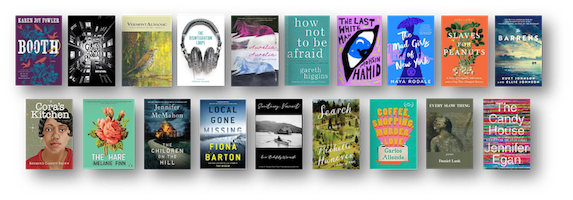Episodes

Monday Sep 23, 2013
Howard Norman – Interview #262 (9/23/13)
Monday Sep 23, 2013
Monday Sep 23, 2013
Award-winning Vermont author Howard Norman, whose latest book is a memoir: I Hate To Leave This Beautiful Place, published by Houghton Mifflin Harcourt. This interview was a co-production with RETN in Burlington. The television interview can be viewed at their website, retn.org, and on YouTube.
My earlier interview with Howard Norman can be heard here.
Today’s Write The Book Prompt is inspired by my interview with Howard Norman, and his memoir I Hate To Leave This Beautiful Place. As we discussed during the interview, for a period in his life, Howard Norman worked in the northwest territories, collecting and translating Inuit folk tales. The prompt this week is to write an original folk tale. Here's a definition of folk tale:
So with that as a start, write a folktale!
- A tale or legend originating and traditional among a people or folk, especially one forming part of the oral tradition of the common people.
- Any belief or story passed on traditionally, especially one considered to be false or based on superstition. (dictionary.com)
Good luck with this exercise and please listen next week for another.
Music credits: 1) “Dreaming 1″ - John Fink; 2) “Filter” - Dorset Greens (a Vermont band featuring several South Burlington High School students.

Monday Sep 16, 2013
Kathryn Davis - Interview #261 (9/16/13)
Monday Sep 16, 2013
Monday Sep 16, 2013
Vermont Author Kathryn Davis, whose new novel is Duplex, published by Graywolf Press.
Today’s Write The Book Prompt was inspired by my conversation with Kathryn Davis about her new book, Duplex. Write about a situation or place that, somehow, has multiple dimensions.
Music credits: 1) “Dreaming 1″ - John Fink; 2) “Filter” - Dorset Greens (a Vermont band featuring several South Burlington High School students.

Monday Sep 09, 2013
Dana Yeaton - Archive Interview #260 (9/9/13)
Monday Sep 09, 2013
Monday Sep 09, 2013
2010 interview with Vermont playwright Dana Yeaton about his play, My Ohio, and writing for the theater.
This week's Write The Book Prompt is to take a scene of dialogue between two or more characters and re-write it for the theater. Block it out, consider if the lines of dialogue that exist might need to be re-tweaked to make sense on stage. Think about your characters' movements; will they be different in a theatrical version?
Good luck with this exercise and please listen next week for another.

Tuesday Sep 03, 2013
David Jauss - Interview #259 (9/2/13)
Tuesday Sep 03, 2013
Tuesday Sep 03, 2013
David Jauss, award-winning author of Glossolalia: New and Selected Stories, published by Press 53.
Today’s Write The Book Prompt was suggested by my guest, David Jauss. It’s an exercise he has used in his introductory writing classes, because this helps people realize they have a creative ability that they otherwise might not know that they have. He starts by offering students a situation to work from:
A man is standing at a bus stop. The bus is due in about five minutes. He’s alone. Then a woman shows up. She turns out to be his ex-wife. They haven’t seen each other in several years.David says that if he just were to leave it at that, people would immediately start inventing their own stories, and playing things out. What he asks is that students write dialogue only. He wants five exchanges between the two characters. Each side of an exchange can be more than one sentence, but only five exchanges, and no descriptions, no setting - only dialogue. First the man says something, then the woman. Then the man, and the woman. Five times total. (David jokes that, as this is fiction, you should give the man the last word.)
Another layer to the prompt is this: do not plan out what the characters will say to one another. David’s students have to wait until he shares a word with them, for each half of each exchange. He chooses a book at random, opens to any page, points his finger to the page, and says the word he finds there. For example, he might hit the word “funnel.” So the man’s half of the first exchange must include the word funnel. When the woman responds, she will need to use the second word that David finds when he opens to another random page and tells his students the word he finds there. So you’ll find ten words, one at a time as you go, to incorporate into these five exchanges.
As you write using today’s prompt, either enlist the help of a partner, who can find random words for you to use in your five exchanges, or open a book of your own and choose as you go, finding words on your own. But don’t plan the five exchanges ahead of time.
Once you have the five exchanges, THEN ask yourself what your characters look like, and what are the details of the setting that you held back from writing initially. David says that people find really interesting ways to put these words in the dialogue, whereas if they had known the words ahead of time, they’d naturally start to plan it all out. Also, as you write the dialogue, you will likely find out about the surroundings, and the details of what your characters look like and such, without realizing you’ve done it, and without “planning it.” I’m guessing, too, that you’d have never used a word such as “funnel” in your dialogue, which means that what you come up with might well be more interesting and take you to a different place than you would have expected.
Good luck with these exercises and please listen next week for another.
Music credits: 1) “Dreaming 1″ - John Fink; 2) “Filter” - Dorset Greens (a Vermont band featuring several South Burlington High School students.

